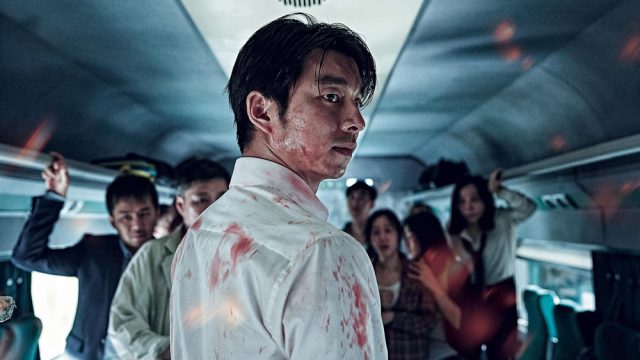The world has given us a lot of inessential zombie flicks. Train to Busan isn’t one of them.
This was director Yeon Sang-ho’s first live-action film, which you wouldn’t know from the variety, fluidity, and coherence of the action sequences or the wrenching and highly visual performances he gets from his actors. It’s a rare horror movie–and a rare action movie–that can succeed at both thrills and compact emotional storytelling. One of the reasons Train to Busan works so well is that Yeon structures it like a disaster movie, taking a varied cast of ordinary people and throwing them all into a situation where survival and camaraderie act as the only real pole stars for their navigation. If it sometimes doesn’t quite feel like horror, it’s because horror is often suffused with a kind of hopelessness; dread is the anticipation of something you’ll just have to endure without recourse. But the characters in Train to Busan act and make meaningful choices, which helps give their deaths dignity and tragedy rather than just gore and gloom.
The film starts with Seok-woo (Gong Yoo) and his young daughter, Su-an (Kim Su-an, almost excruciatingly vulnerable); he clearly loves her, but just as clearly hasn’t been great about giving her much of his time or even much of his attention. Agreeing to take her on the train to Busan, to visit her mother, is a kind of guilt-ridden effort to prove he can be a good, engaged father.
Their train ride brings them into collision with brash Sang-wha (the charismatic, scene-stealing Ma Dong-seok) and steely Seong-keong (Jung Yu-mi), currently expecting their first child; a team of high school baseball players, most notably Yong-guk (Choi Woo-shik), and their unofficial tagalong cheerleader, the lovestruck Jin-hee (Sohee); late middle-aged sisters Jong-gil (Park Myung-sin) and In-gil (Yee Soo-jun); and assorted others, including a homeless man, a train conductor, and a rich executive disturbingly loyal to his own self-interest.
The movie does a number of clever things to take advantage of its premise. These zombies have very limited memories and are easily confused, making them vulnerable to confusion and standstill in darkness; since the route is regularly punctuated by tunnels, the characters are able to sometimes use this to their advantage. (Another highlight in this vein appears early on, as Seong-keong resourcefully improvises a screen out of wet newspapers, foiling the zombies’ terrible sense of object permanence.) The strategies for moving between train cars have to change as the story goes on and the resource balances change, but one of the best features the characters crawling through luggage racks over the zombies’ heads in a scene that could be comedic but is instead mostly clever and unbelievably tense.
The characters naturally sort themselves into a kind of community–a morality that is, again, more typical of disaster films than horror films, where terror can end up driving its victims into mindlessness–that allows them to have their moments of tragedy and triumph. Interestingly, what Su-an wants from her father isn’t more of his presence as much as it is more of a sense that his presence is worth having–she loves him and wants him around, but even more than that, she wants him to be worthy of her love and admiration. When he recommends selfishness in the face of danger, the better to focus on saving themselves, she’s horror-struck, and part of the arc of the film is Seok-woo extending his protectiveness beyond his daughter to the people around him. The underlying message of Train to Busan is effectively a reminder that we all owe things to each other, making the end result sort of like 28 Days Later crossed with a pulp take on A Night to Remember. And if that’s not a recommendation, I don’t know what is.
Train to Busan is currently streaming on Shudder.

